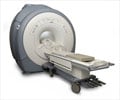
The study demonstrated that inmates with relatively low anterior cingulate activity were twice as likely to reoffend than inmates with high-brain activity in this region.
"These findings have incredibly significant ramifications for the future of how our society deals with criminal justice and offenders," said Dr. Kent A. Kiehl, who was senior author on the study and is director of mobile imaging at MRN and an associate professor of psychology at the University of New Mexico. "Not only does this study give us a tool to predict which criminals may reoffend and which ones will not reoffend, it also provides a path forward for steering offenders into more effective targeted therapies to reduce the risk of future criminal activity."
The study looked at 96 adult male criminal offenders aged 20-52 who volunteered to participate in research studies. This study population was followed over a period of up to four years after inmates were released from prison.
"These results point the way toward a promising method of neuroprediction with great practical potential in the legal system," said Dr. Walter Sinnott-Armstrong, Stillman Professor of Practical Ethics in the Philosophy Department and the Kenan Institute for Ethics at Duke University, who collaborated on the study. "Much more work needs to be done, but this line of research could help to make our criminal justice system more effective."
The study used the Mind Research Network's Mobile Magnetic Resonance Imaging (MRI) System to collect neuroimaging data as the inmate volunteers completed a series of mental tests.
Advertisement
The anterior cingulate cortex of the brain is "associated with error processing, conflict monitoring, response selection, and avoidance learning," according to the paper. People who have this area of the brain damaged have been "shown to produce changes in disinhibition, apathy, and aggressiveness. Indeed, ACC-damaged patients have been classed in the 'acquired psychopathic personality' genre."
Advertisement
Source-Eurekalert














